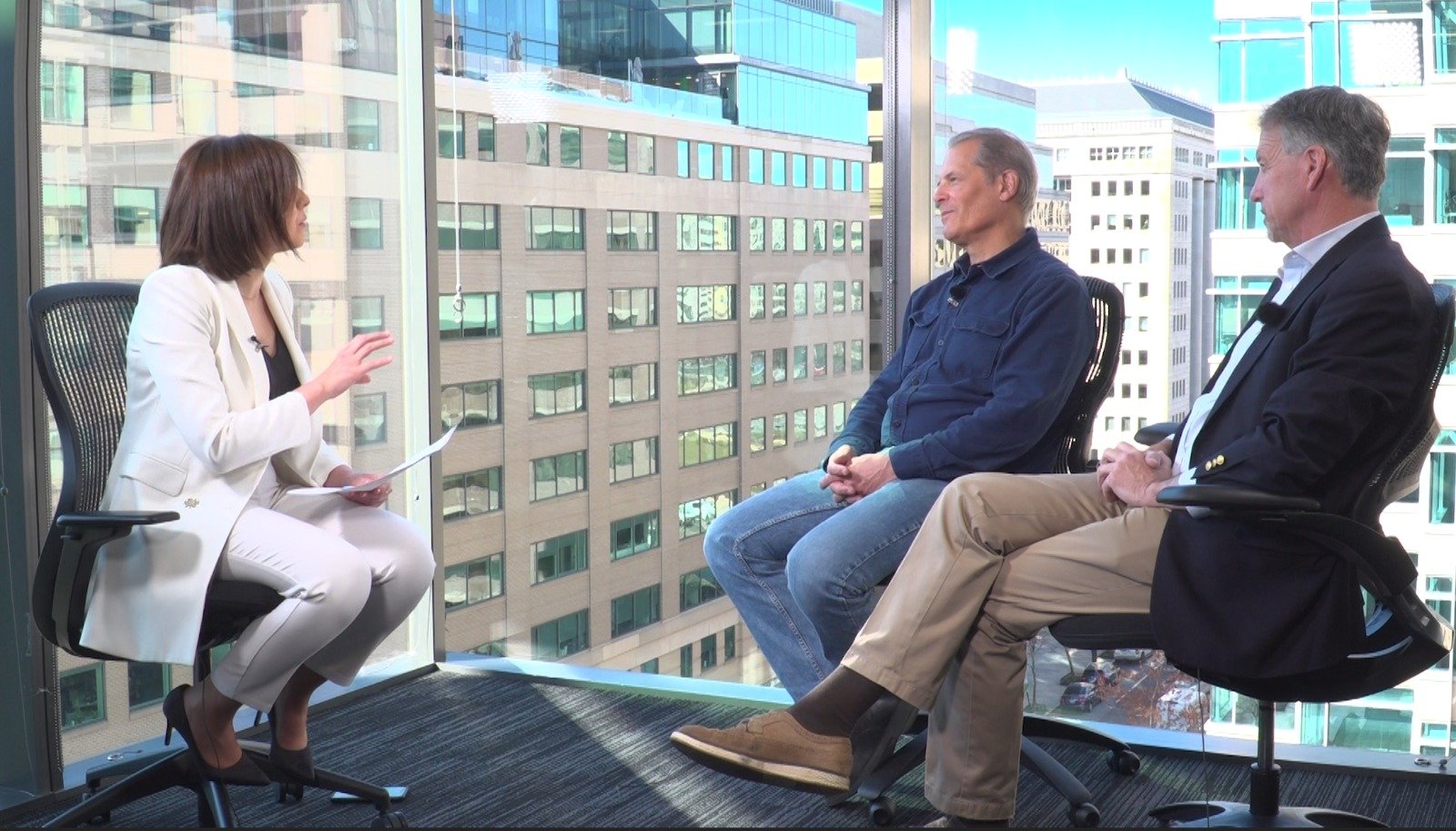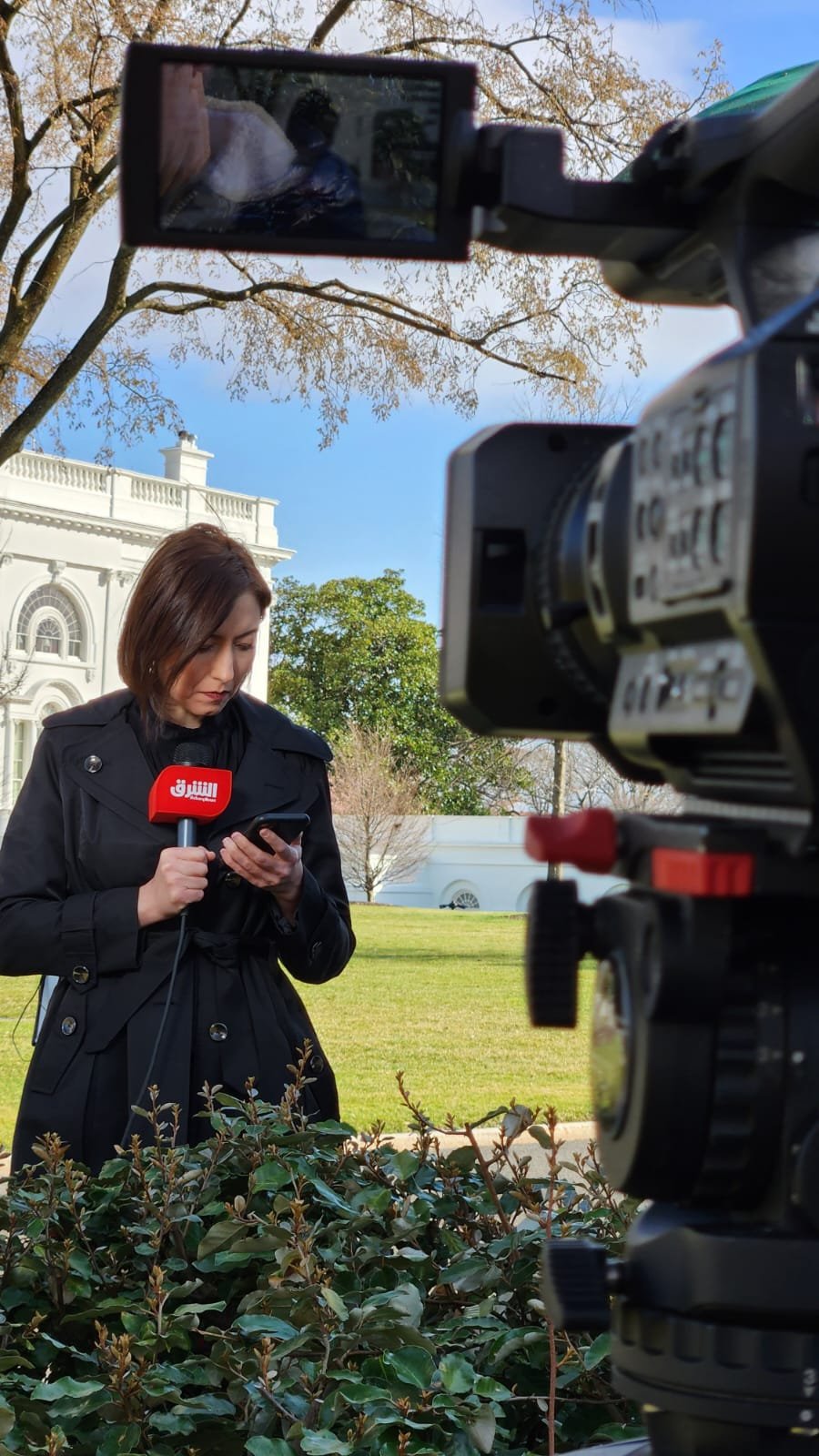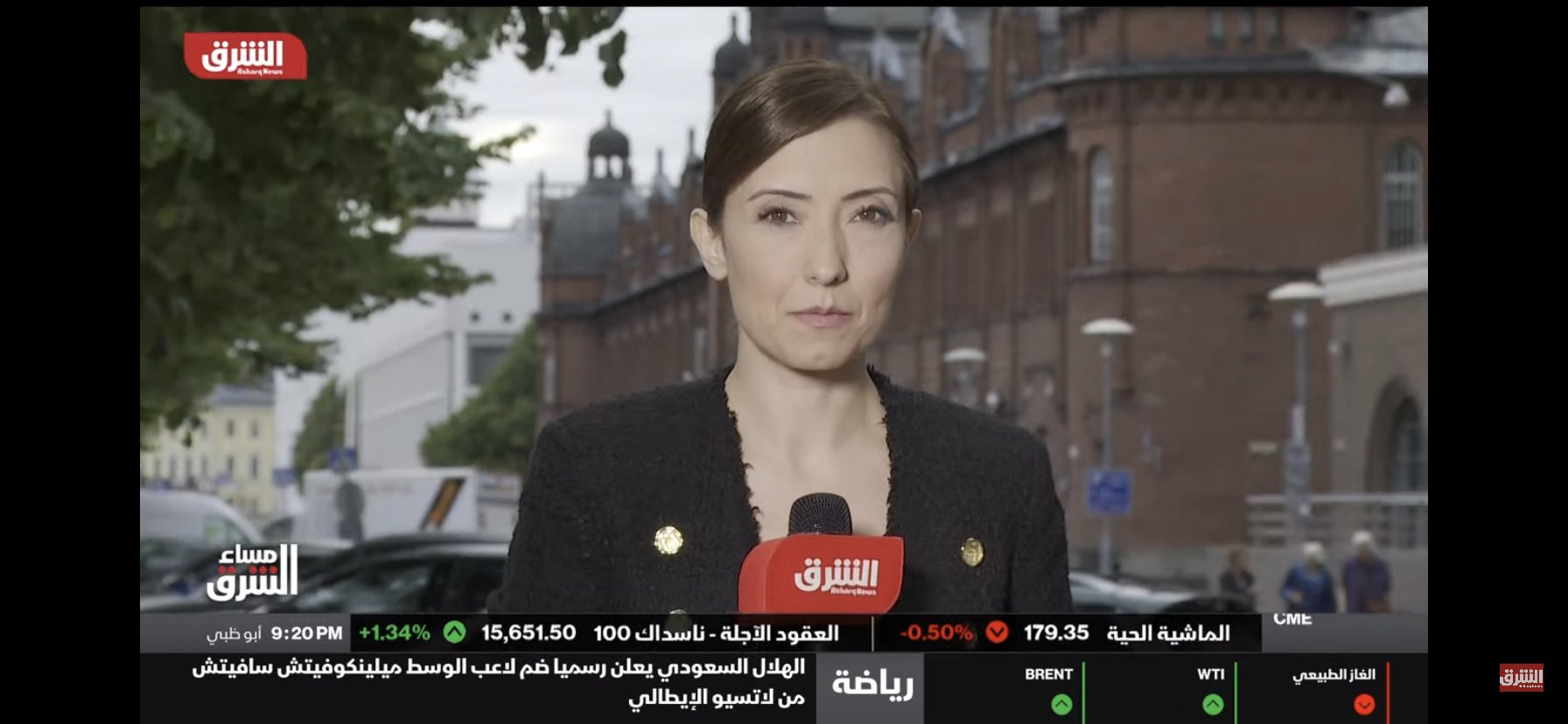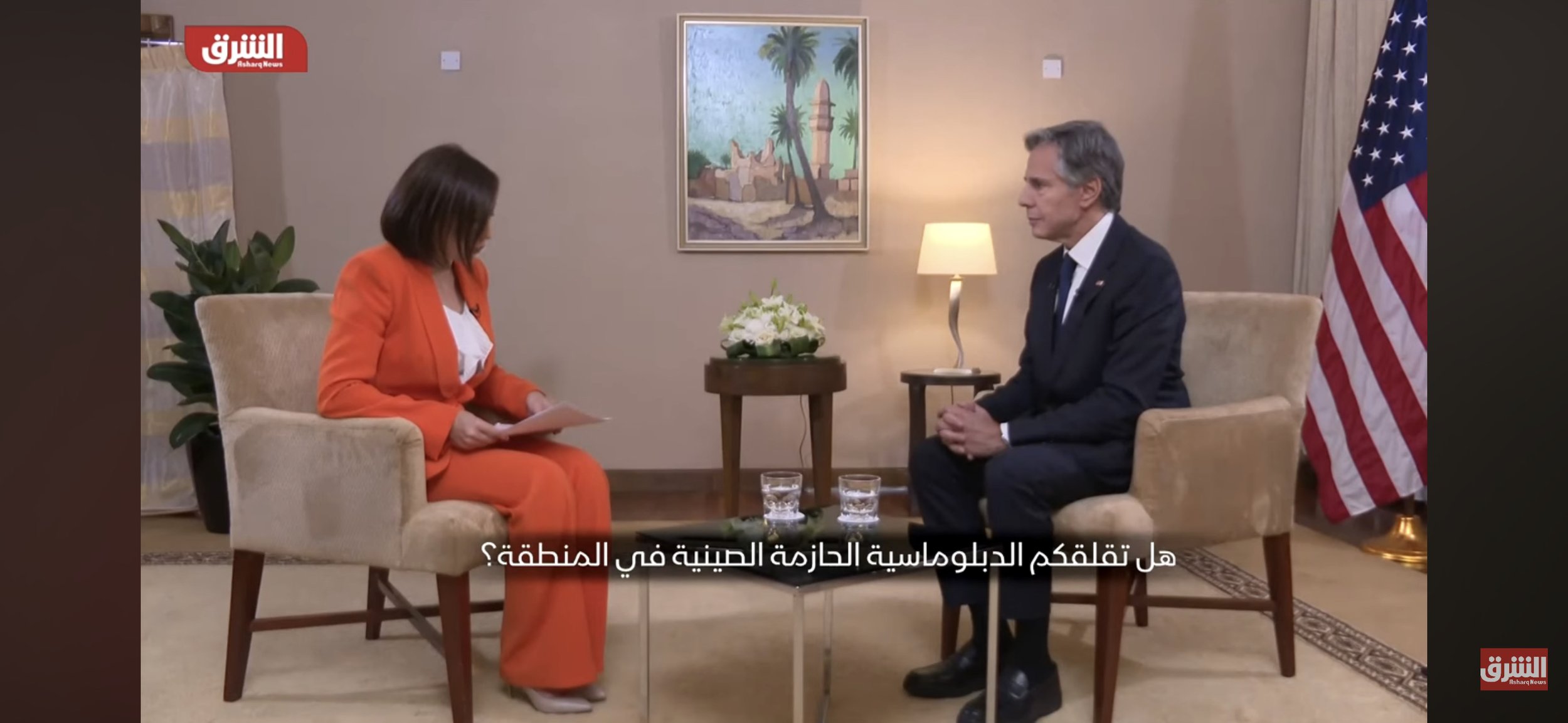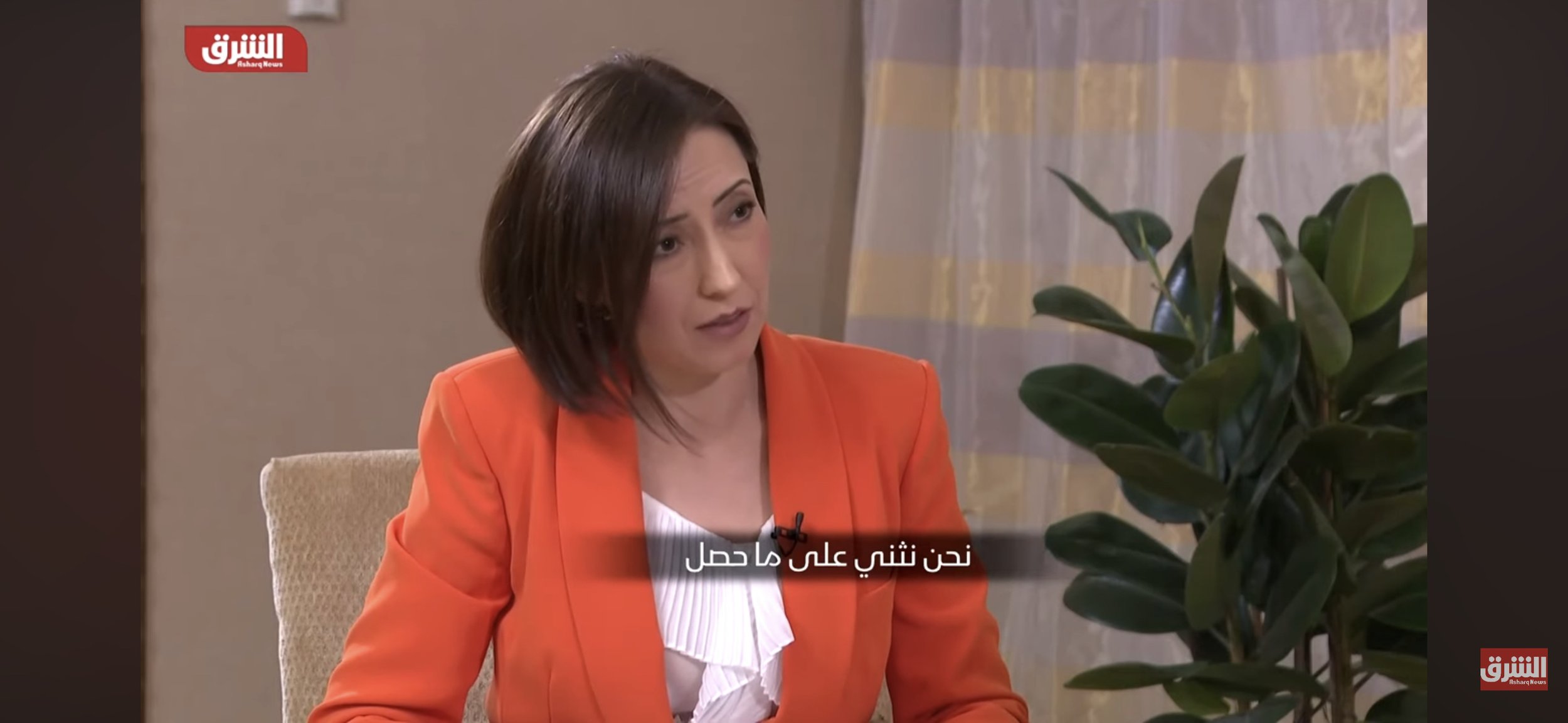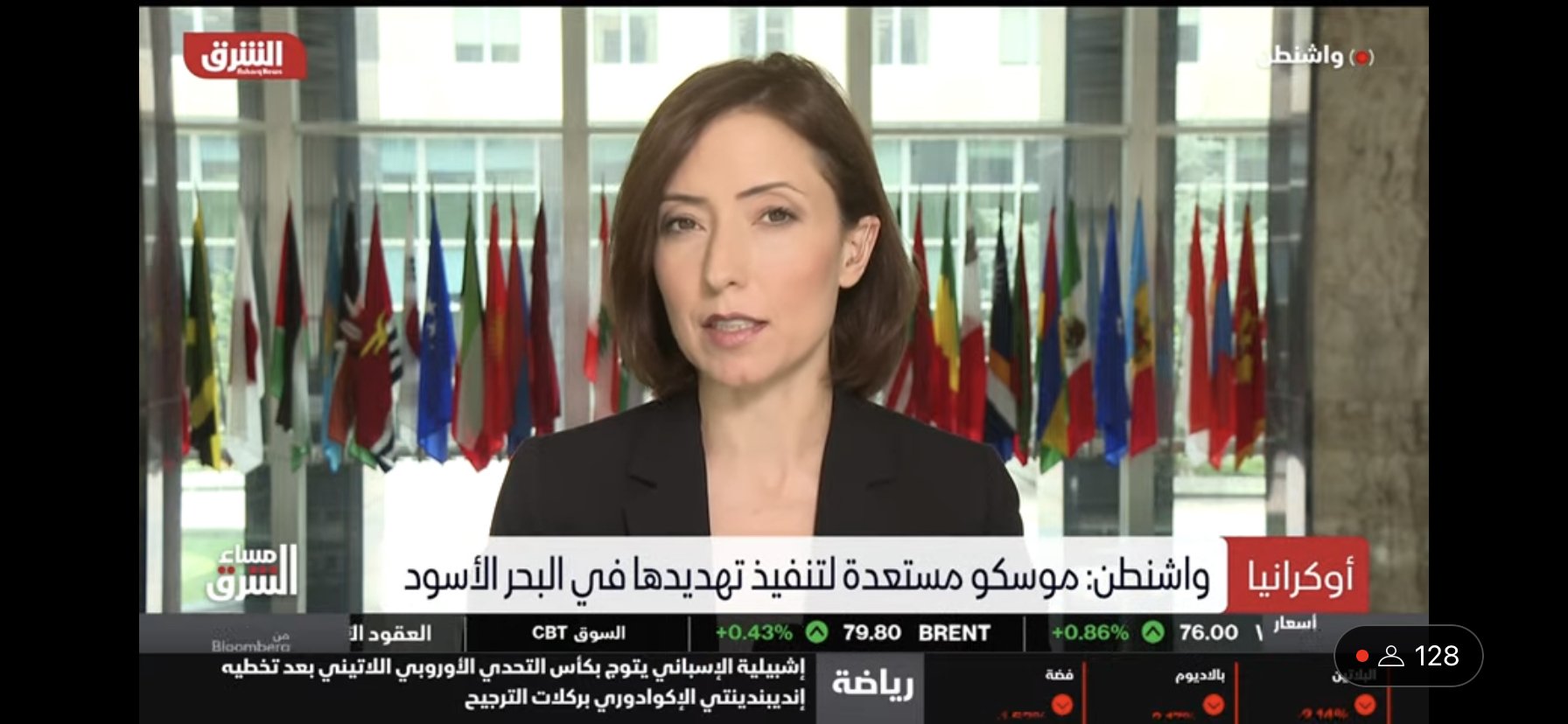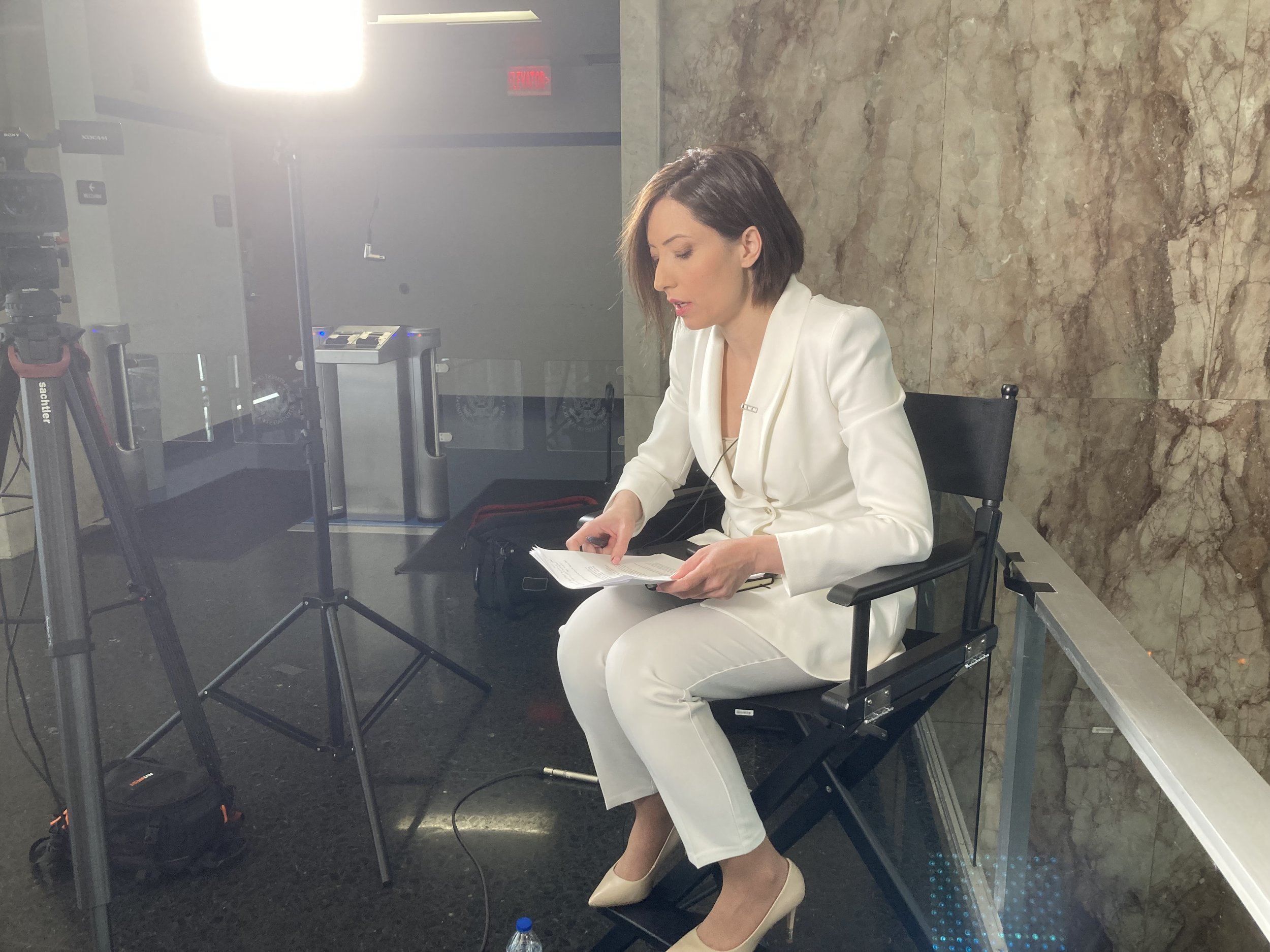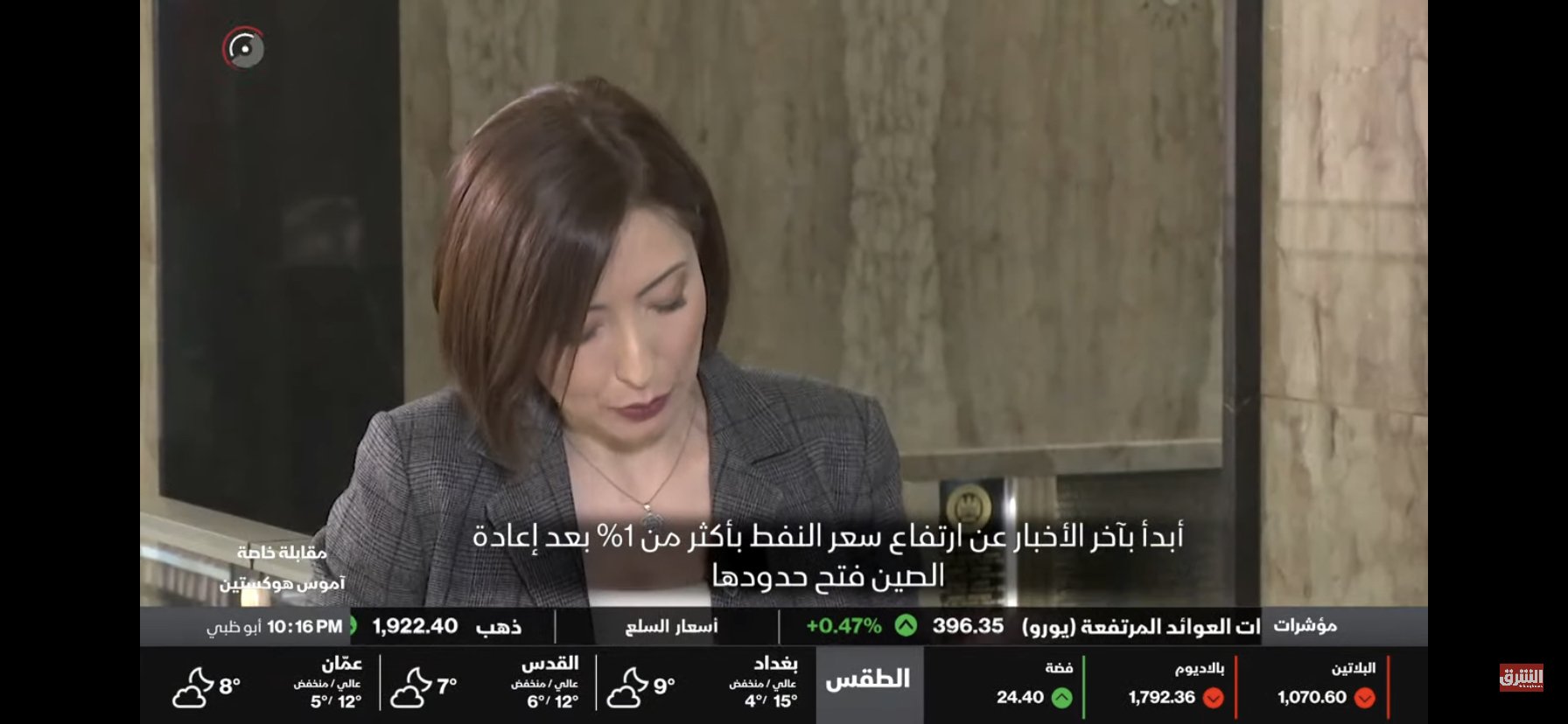AFPC-USA Names Hiba Nasr a 2023 Professional Excellence Awardee
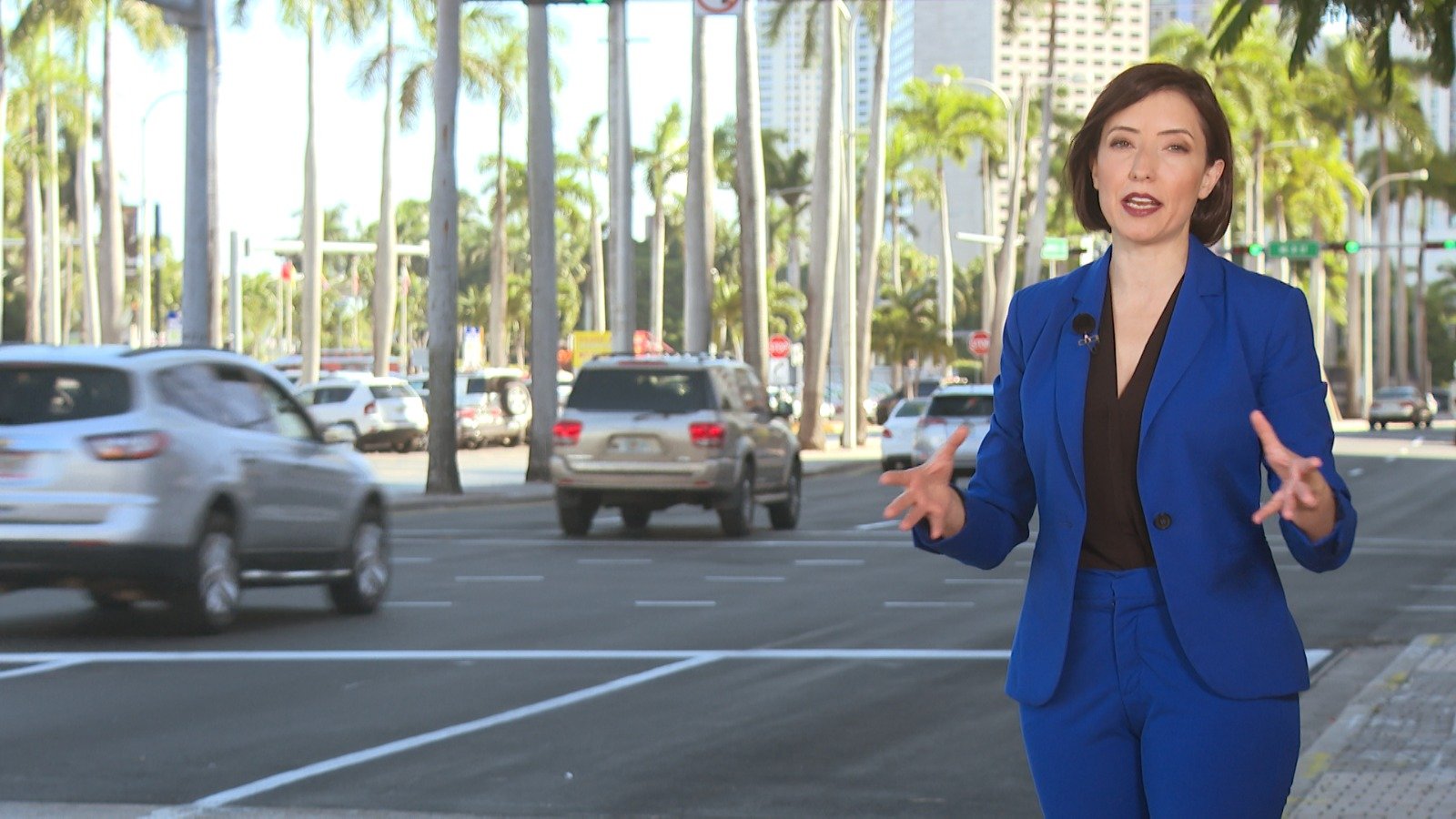
Hiba Nasr joined Asharq News in 2020 as a Senior Correspondent in Washington, D.C. She covers the White House, State Department and Pentagon, mainly on matters related to American foreign policy and the United States’ role in the world. Hiba covered prominent global events, including the President’s visits to Ukraine, Ireland, Belfast, Tokyo, Seoul , Brussels, Warsaw, Rome, Glasgow, Brussels, Geneva, and his summits with NATO, EU leaders, and the Russian President as part of the White House Press Corps.
She was one of a few to interview Secretary Blinken in June 2023 during his visit to Saudi Arabia, Secretary Pompeo in March 2019 during his visit to Lebanon as well as the Special Advisor to the President, Jared Kushner, after the rollout of the peace plan and following the announcement of the normalization agreement between Israel and the UAE. She also interviewed Under Secretary Victoria Nuland, and several former and current senior U.S. officials, and has covered the United Nations General Assembly six times, as well as American elections in 2016, 2018, 2020, and 2021 . Moreover, Hiba covered the Singapore Summit and G20 in Buenos Aires with the White House Press Corps.
Hiba Nasr
Before joining Asharq News, Hiba worked at Sky News Arabia Headquarters in Abu Dhabi, where she held several positions including working as their Washington Bureau Senior Correspondent, on the assignment desk in Abu Dhabi as a deputy news editor, and in the newsroom. Hiba also worked for Qatar TV for two years, where she served as a news producer and was responsible for two daily news bulletins.
In Saudi Arabia, Hiba was the editor in chief for a daily talk show on Al-Ekhbariyyah TV news channel and a senior producer for a talk show on Saudi Channel One. She also served as a reporter for MBN (Al Hurra TV) as well as for MBN (Al Hurra TV) in Lebanon for a short period of time before leaving for Saudi Arabia. She worked for UPI, Future TV, and Future Newspaper in Beirut.
Hiba graduated from the Faculty of Information at the Lebanese University in Beirut and interned with several local media outlets. She is certified in Personal Leadership from LMI. In addition to being fluent in Arabic and English, she has a working knowledge of French.
The following interview has been condensed and edited for clarity.
What was the primary reason you chose to pursue a career in the United States as a foreign journalist?
I come from the Middle East where the story is right now. And this is not new. We’ve been the story for many decades. During all this, we used to wait for what could come out from here, from this city, Washington, that could decide our destiny. So I decided to be close to where decisions are made, to understand how they are made and shaped, and who can influence a decision that can impact the lives of millions of people.
Another reason behind my decision to come here was to understand the United States and be able to explain it to our audience in a way that could help overcome the misunderstanding that entailed the first few years of this century. During this time, I believe this was very essential, because in reporting the entire story you can help people not lose sight.
You were recently awarded by the Association of Foreign Press Correspondents in the United States (AFPC-USA). How did you feel about this recognition?
The recognition came at a very busy time here. The war in the Middle East was on its second week and I was overwhelmed, sleeping everyday less than 4 hours. Suddenly this email came from [AFPC-USA Executive Director] Thanos Dimadis.
At the beginning I didn’t process it because I was watching a horrible video on Twitter. It took me few minutes to look back at it and read it carefully. I didn’t know how to feel or what to say. I felt happy and guilty because I am happy. I went back to work, like I was telling myself, “No it is not the time to think about this.” And this is a journalism thing. Your duty is always above everything.
The first moment I was able to process it was in the evening; I said, “Damn this is good.” And when I started seeing my friends’ reactions to it, I started feeling this is very nice, and rewarding. At that moment I felt so grateful and that hard work pays off.
As a journalist, how do you expect the support from AFPC-USA to help you advance your career?
The work being done is great but I believe It would be very helpful if it could be systemized in a way that enhances the relationship within the Association itself and with others. It would very beneficial to serve as a platform for members in a way that facilitates access to stories and sources especially for those who came recently to the U.S.
Why do you think the work of AFPC-USA is important and what are your thoughts on its impact on the journalism field at large?
It is very important to have an independent association for foreign journalists in any country but especially in the U.S. Such an association should serve as a reference for foreign journalists.
What made you decide to become a journalist? How do you hope to make an impact in the journalism field of your country of origin?
Again, I am from the Middle East, from Lebanon. Politics are part of our daily life. I witnessed big events firsthand and I wanted to tell the story, the entire story, report the full picture. “Real journalism” is going, most of the time, against gravity. It is doubting everything until you verify it. And you cannot be a journalist, a real one, unless you are very authentic.
What is the state of press freedom in your country of origin and how do you hope that your work will encourage more people to access independent and credible information?
Lebanon has always been known for the freedom of the press, but since 2005 and the assassination of Rafic Hariri, things have been deteriorating. Despite this sad fact, It is still better than many countries. But what I hope from my work is to reflect that what matters most is “the fundamentals.” No matter how popular you are, how many followers you have on Instagram or Twitter, what matters is sticking to the truth even when it is not popular or trendy. Journalists write down the first draft of history and I want to make sure I am writing the facts on this first draft.
What do you think is the greatest threat to journalism today?
The greatest threat is misinformation. With the flow of information on social media it is becoming very challenging to know what is wrong and what is right, and this makes the journalists a target sometimes. Speaking about being a target, the conflict in the Middle East, like many other conflicts before, showed us that we have a long way to go to ensure journalists are protected and safe.
Alan Herrera is the Editorial Supervisor for the Association of Foreign Press Correspondents (AFPC-USA), where he oversees the organization’s media platform, foreignpress.org. He previously served as AFPC-USA’s General Secretary from 2019 to 2021 and as its Treasurer until early 2022.
Alan is an editor and reporter who has worked on interviews with such individuals as former White House Communications Director Anthony Scaramucci; Maria Fernanda Espinosa, the former President of the United Nations General Assembly; and Mariangela Zappia, the former Permanent Representative to Italy for the U.N. and current Italian Ambassador to the United States.
Alan has spent his career managing teams as well as commissioning, writing, and editing pieces on subjects like sustainable trade, financial markets, climate change, artificial intelligence, threats to the global information environment, and domestic and international politics. Alan began his career writing film criticism for fun and later worked as the Editor on the content team for Star Trek actor and activist George Takei, where he oversaw the writing team and championed progressive policy initatives, with a particular focus on LGBTQ+ rights advocacy.



